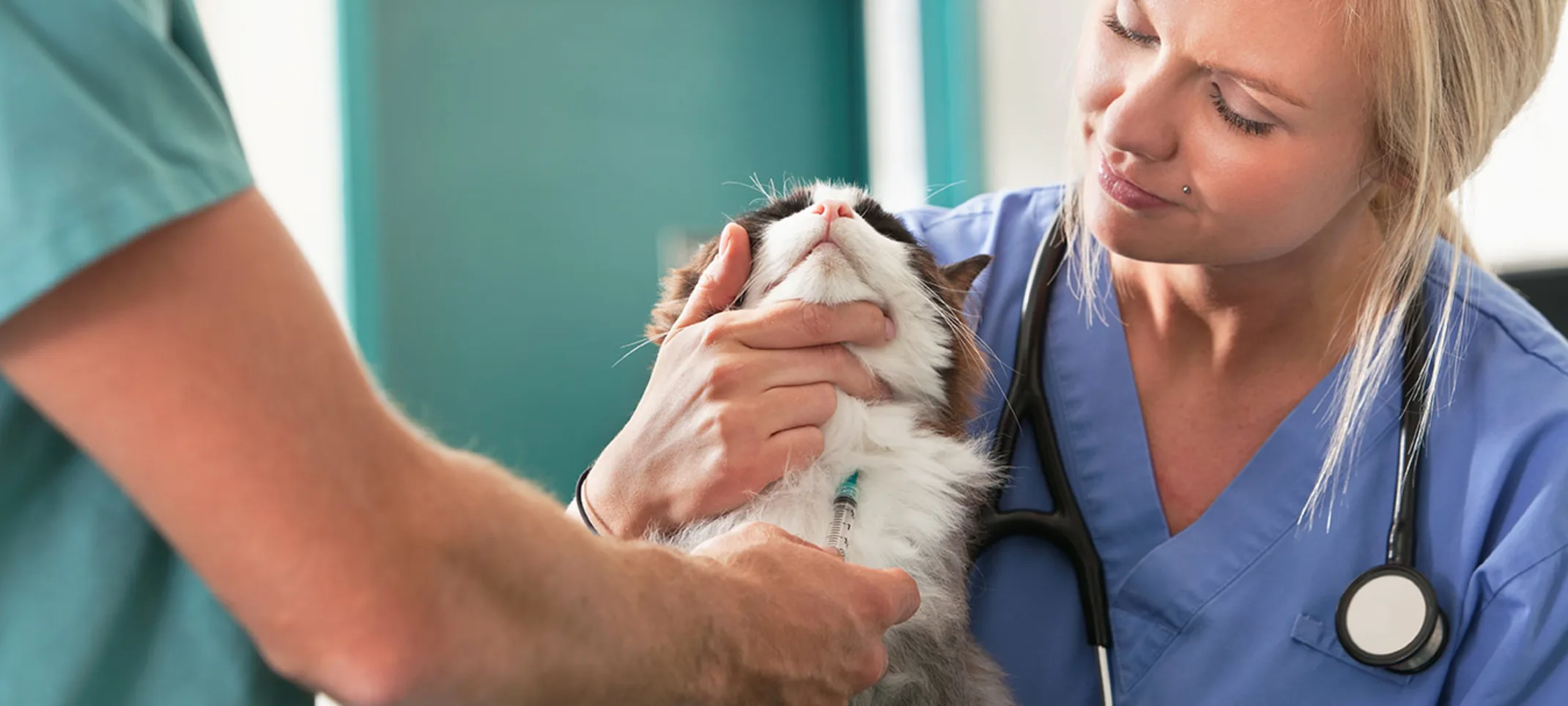College Mall Veterinary Hospital
Laboratory Services
Diagnostic testing can identify problems your pet may be experiencing so that proper treatment can begin before a condition worsens.

Overview
Our hospital is equipped with a state-of-the-art, in-house laboratory to provide accurate test results quickly and efficiently. A variety of diagnostic test can be performed in our laboratory if Our hospital also has access to a trusted reference laboratory for advanced testing needs.
Why would my pet need laboratory work?
Most laboratory work is done at routine wellness exams as directed by our doctors. Unfortunately, pets can’t tell us where it hurts, and oftentimes, a healthy appearing animal may be masking symptoms of disease or illness. Our doctors use this information, along with a complete physical exam and history, to get a complete picture of your pet’s overall health as a baseline for early disease detection or for diagnostics purposes in order to help identify, diagnose, and formulate a treatment plan for your pet. For emergencies or un-scheduled visits, our diagnostic lab can run various tests to determine the best treatment plan for your pet.
When would laboratory work be needed?
We recommend regular tests to determine your pet’s health. Laboratory diagnostic testing is performed if your pet is: preparing for surgery, unwell, being examined after a traumatic event, demonstrating changes in weight or behavior, or if it is indicated based on your patient’s health status. If any concerns or conditions are found, we will help you decide on proper treatment. If your pet is showing irregular behavior, please schedule an appointment as soon as possible. Our doctors will determine which laboratory services are appropriate during your exam.
How do veterinarians use laboratory work?
To ensure a proper diagnosis, we first examine your pet by looking at their eyes, ears, and skin and checking their cardiovascular, neurological, gastrointestinal, and skeletal systems for any abnormalities. We will then perform laboratory diagnostic test as indicated. These tests could include examining: blood, urine, fecal samples, fine needle aspirates, or ear swabs in order to fully assess your pet’s overall health. The doctor also uses laboratory test to check your pet’s kidneys, liver, pancreas, and endocrine system. Based on your pet’s condition, we may recommend further diagnostic testing. If you’re concerned that something may be wrong with your pet, please call us to schedule an appointment.
